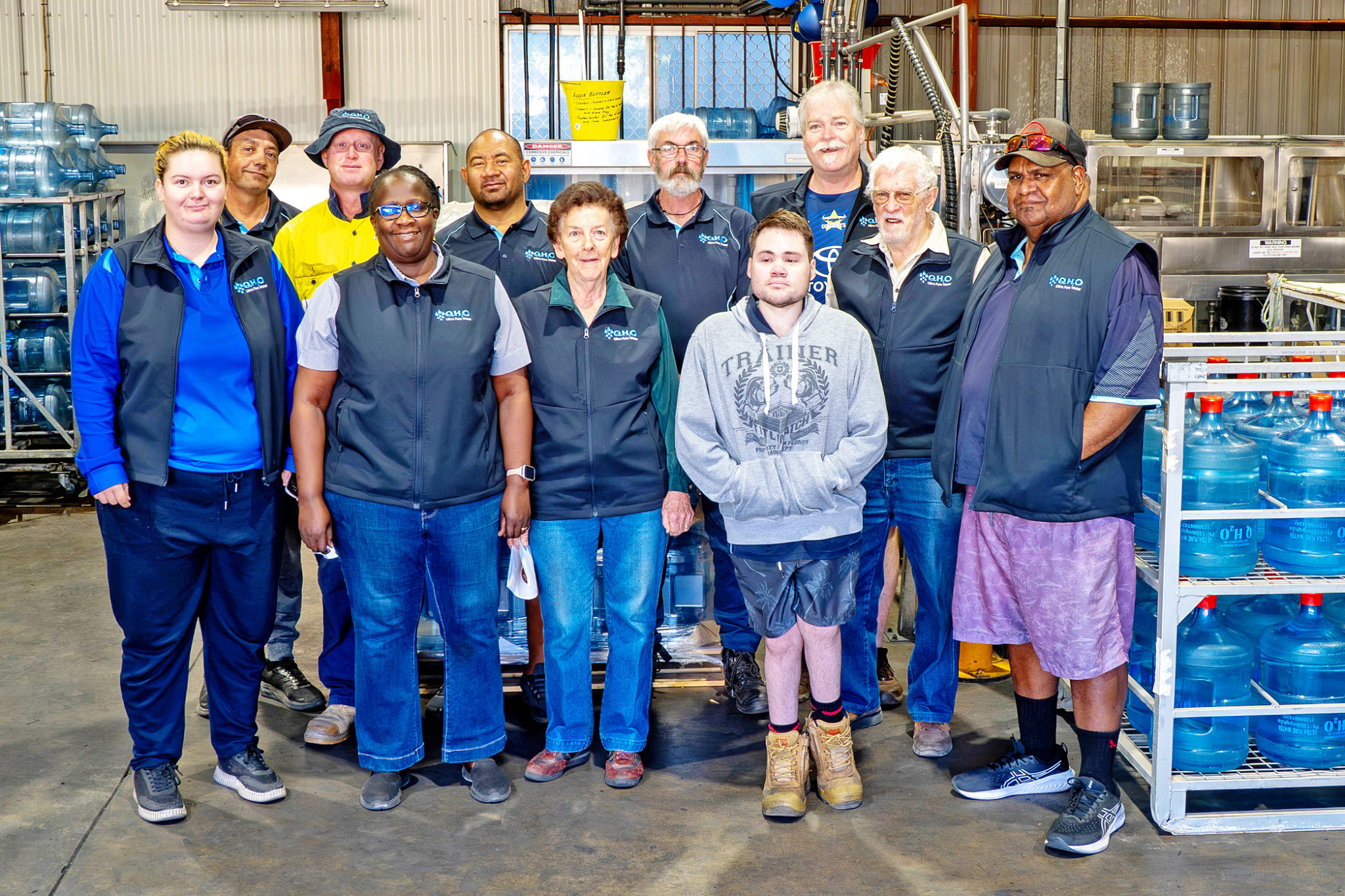Business
30 July, 2025
After humble beginnings, QH2O celebrates 25 years
The iconic Mount Isa business has marked a major milestone.

In a town where the tap water is famously “pithy” and temperatures demand constant hydration, one local business has been a refreshingly constant for a quarter of a century.
QH2O is celebrating 25 years in business, marking a journey from a humble backyard operation to a cornerstone of community well-being.
Owners Darcy and Karin Redman said their remarkable journey was built on innovative hydration, dedicated staff, and a deep commitment to Mount Isa.
The story of QH2O began with an unexpected connection.
John Vardy, a high school science teacher, had started producing a unique hydrating water to alleviate his migraines. When he was transferred to Kingaroy, he faced the prospect of his small operation, serving around 35 customers from under his house, closing for good.
It was Sam Bolch, a property valuer, who became aware of the opportunity. He then approached Darcy, who, with his background in technology, saw the potential.
Initially aiming for a simpler production, Darcy’s research led him to embrace a more complex, industrial approach in his vision for a “plain hydrating water”.
Karin fondly recalls the early days in the shed at Beverley Lane: “We ended up with a ute, a driver, an office lady – we had a permanently manned phone – it was a great advance for a tiny little operation”.
Darcy added with a laugh: “We reached the dizzy heights of 100 bottles a week in no time”.
Today, that modest output has soared to an impressive 4500 to 5000 bottles per week.
The distinct taste of Mount Isa’s tap water created a clear need for QH2O’s product.
They quickly outgrew their first location, moving to their current location on Traders Way in 2003.
By the time they left Beverley Lane, production had jumped to more than 1000 bottles a week.
A significant turning point for QH2O was Darcy’s Churchill Fellowship to America, specifically to study hydration in hot, low-humidity climates.
Working under Dr Kelly Reynolds, a leading hydrationist, Darcy gained invaluable insights into the autonomous cellular process of hydration.
This research revealed that popular misconceptions, like the idea that cold water instantly hydrates, are often false.
“Hydration requires a water of a very specific nature and that’s what we produce at QH2O,” he told North West Weekly.
The meticulous process of creating QH2O’s distinct water begins with Mount Isa’s town water, which they proudly pay for.
The water undergoes extensive pre-treatment, stripping out nearly everything present, including chlorine, iron, and manganese.
Proprietary filtration then ensures the correct “aqueous starter salts” are present, which act as signalling mechanisms for cellular hydration.
The core of the operation is the reverse osmosis machine, a process mirroring natural osmosis but in reverse, to extract the desired water.
Unlike many modern industries, QH2O has intentionally resisted full automation.
The Redmans said they firmly believed in “relying on good people rather than relying on simplistic automation” due to the daily and seasonal variations in water quality.
Karin emphasised the human element in quality control, noting that staff meticulously inspect each bottle for any foreign objects, a task a machine could not replicate.
She attributed much of QH2O’s enduring success to its loyal staff and customers.
With a team of around a dozen employees, the Redmans focus on ensuring staff feel a strong connection to the business.
“I think they think of us as mum and dad a bit,” Karin said.
A beloved tradition, initiated by a long-term employee, is Karin’s Friday scones, a treat so popular it once had the driver of the smoko van pop in each Friday.
Community involvement is a hallmark of QH2O, with approximately 10 per cent of their output donated to not-for-profits.
A significant “game-changer” for the business was the adoption of local ozone production for sterilisation, replacing a previous mix of chlorine and ultraviolet light.
This on-site system ensures the purity of the water throughout the piping system, eliminating the risk of deterioration.
They also save 720 kilolitres of water annually by recycling rejected water for bottle washing.
“We’ve moved five million, 15-litre bottles in 25 years,”
“We are cheaper in terms of bottled water costs than people get on the coast. And we are way, way superior in terms of quality”.